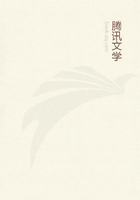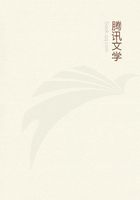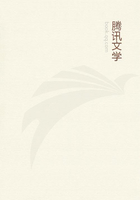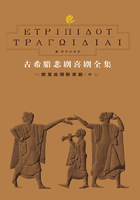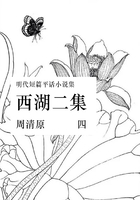The virtues of self-command are almost entirely recommended to us by the sense of propriety, by regard to the sentiments of the supposed impartial spectator; whilst the virtues of prudence, justice and benevolence, are chiefly recommended to us by concern for our own happiness or the happiness of other people. They are recommended to us primarily by our selfish or benevolent affections, independently of any regard as to what are or ought to be the sentiments of other people. Such regard indeed comes later to enforce their practice; and no man ever trod steadily in their paths whose conduct was not principally directed by a regard to the sentiments of the sup- posed impartial spectator, the great inmate of the breast and arbiter of our conduct. But regard for the sentiments of other people constitutes the very foundation of the virtues of self-restraint, and is the sole principle that can moderate our passions to that degree where the spectator will give his approval.
Another difference is, that while regard to the beneficial effects of prudence, justice, and benevolence recommend them originally to the agent and afterwards to the spectator, no such sense of their utility adds itself to our sense of the propriety of the virtues of self-command. Their effects may be agreeable or the contrary, without affecting the approbation bestowed on them. Valour displayed in the cause of justice is loved and admired, but in the cause of injustice it is still regarded with some approbation.
In that, as in all the other virtues of self-command, it is the greatness and steadiness of the exertion, and the strong sense of propriety necessary to maintain that exertion, which is the source of admiration. The effects are often only too little regarded.
CHAPTER X.ADAM SMITH'S THEORY OF HAPPINESS.
Although Adam Smith never distinctly faces the problem of the supreme end of life, nor asks himself whether virtue and morality are merely means to the attainment of happiness, or whether they are ends in themselves irrespective of happiness, he leaves little doubt that happiness really occupies in his system very much the same place that it does in the systems of professed utilitarians. But he distinguishes between happiness as the natural result of virtue and happiness as the end or purpose of virtue;and, by satisfying himself that it is the natural result, he saves himself from considering whether, if' it were not, virtue would remain in and for itself desirable as an end.
"The happiness of mankind," he says, "as well as of all other rational creatures, seems to have been the original purpose of the Author of Nature,"no other end appearing to be worthy of His supreme wisdom and beneficence.
The fact therefore that we most effectually promote the happiness of mankind, and so to some extent promote the great plan of Providence by acting according to the dictates of our moral faculties, is an additional reason, though not the primary one, for our doing so; and, conversely, the tendency of an opposite course of conduct to obstruct the scheme thus ordained for the happiness of the world, is an additional reason for abstaining from it. Accordingly, the ultimate sanction of our compliance with the rules for the promotion of human welfarethe ultimate sanction, that is, of virtuelies in a system of future rewards and punishments, by which our co-operation with the divine plan may be enforced.
To this extent, therefore, Adam Smith seems to agree with the utilitarianism of Paley in making the happiness of another world the ultimate motive for virtuous action in this. But although be thus appeals to religion as enforcing the sense of duty, he is far from regarding morality as only valuable for that reason. He protests against the theory that "we ought not to be grateful from gratitude, we ought not to be charitable from humanity, we ought not to be public-spirited from the love of our country, nor generous and just from the love of mankind, and that our sole motive in performing these duties should be a sense that God has commanded them."Hence when he speaks of the perfection and happiness of mankind as "the great end" aimed at by nature, it is clear that he intends the temporal and general welfare of' the world, and that, though the happiness of another may be a motive to virtue, it is not so much the end and object of it as happiness in this. It is in this life, also, that virtue and happiness, vice and misery, are closely associated; and nature may be regarded as having purposely bestowed on every virtue and vice that precise reward or punishment which is best fitted either to encourage the one or to restrain the other. Thus the reward attached to industry and prudencenamely, success in every sort of businessis precisely that which is best calculated to encourage those virtues, just as in the same way and for the same reason there is attached to the practice of truth, justice, and humanity, the confidence and esteem of those we live with. It requires indeed a very extraordinary concurrence of circumstances to defeat those natural and temporal rewards or punishments for virtue or vice, which have been fixed in the sentiments and opinions of mankind.
Adam Smith does not then regard virtue entirely as its own end, irrespective of its recompence in the increase of our happiness. Still less, however, does he acknowledge the cardinal doctrine of the utilitarian school, that virtue derives its whole and sole merit from its conduciveness to the general welfare of humanity. He takes up a sort of middle ground between the Epicurean theory, that virtue is good as a means to happiness as the end, and the theory of the Stoics, that virtue is an end in itself independently of happiness. The practice of virtue, he would have said, is a means to happiness, and has been so related to it by nature; but it has, nevertheless, prior claims of its own, quite apart from all reference to its effect upon our welfare.

